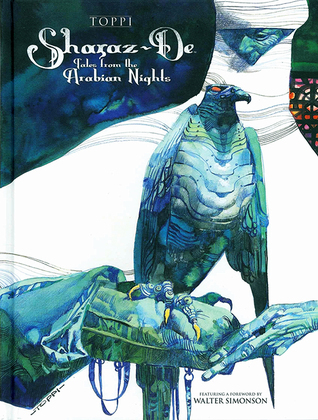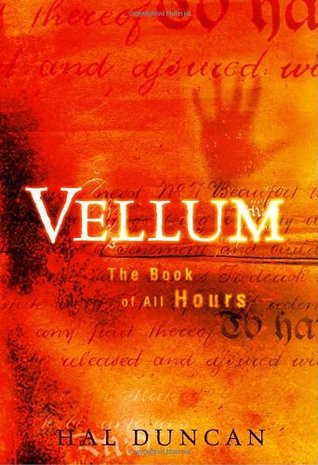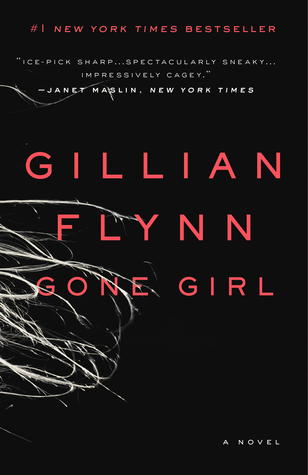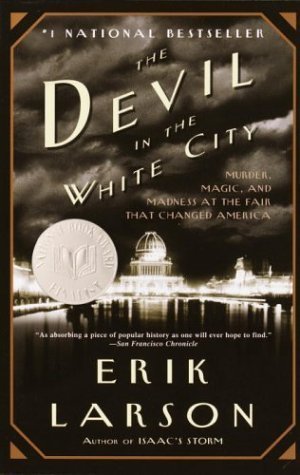
So, I read this book for two reasons: I needed a book to read that was written by someone under 30, and I really didn't want to read
Divergent. So I went to the NaNoWriMo Facebook group and asked if anyone there had written anything that would qualify, and this one got tossed out as a possibility--I honestly don't remember which of the listed authors mentioned it, and I'm not going to go back and look. I was really hoping for good things from this. The premise, that a group of friends moves into a mansion in Hawaii and has romantically-inclined adventures, sounded cute. But in execution, I was severely disappointed, and I don't really think that I could recommend it.
I took a
ton of notes while I was reading this because so many things bugged me, something that I rarely do when reading because I don't have that many issues with a book. But here, they just kept piling up until I had to take notes or risk losing the whole train of thought. Let me touch on the most minor one first: editing. I normally have a lot of issues with indie books and line edits, use of grammar, etc, and I have to say that wasn't the case here, except for a few minor cases. The dialogue isn't written correctly when the characters cut each other off, with the dashes left outside the quotation marks instead of inside of them, and there are several instances of the authors using a homophone for the word they meant--the one I noted down was using "feinting," as in faking, instead of "fainting," as in passing out, but I remember seeing a few more before that. For the most part, however, there's a solid grasp of spelling and grammar here, which is often missing in independently-published works. They could, however, use a proper book formatter. This book is written like a blog, with line breaks between all of the paragraphs instead of tabbing, and no working table of contents, things that don't take that much effort to include but can make a big difference in streamlining the reading experience.
No, what bothered me here was the structure and plot of the book itself...by which I mean that there wasn't any. The plot is supposed to be that the main character, Whisper, finds out that she inherits her aunt's mansion and fortune in Hawaii, on the condition that she and the guest list from her last birthday party move in immediately, leaving behind their jobs and lives in the process, of course. Because all of these people would
totally be willing to jump at the strings of a dead lady they've never met... For what purpose? No one knows. I certainly never found out, like I never found out why the party guests, despite having attended said party together, had never met when they moved in. This read as a meandering "slice of life" role play rather than as a book with a plot (even a character-driven one) and solid structure. Whenever anything starts to lag, which things do quite often, the authors just toss in another character for no apparent reason than to get things going again. Nothing ties in to a larger plot. And can we talk about names? What kind of names are "Whisper" and "QT" (As in Cutie? Really?) when the rest of the people have normal names? Whisper's appears to have no purpose other than to designate her as a "special snowflake." QT's bothered me, too, but luckily she wasn't mentioned that much, despite being mentioned in the first few pages. She hardly showed up at all after that, until the authors apparently decided they needed a wedding to liven things up--again, for no apparent reason other than things had stopped moving.
I hated Sasha, and found no redeeming qualities in her. Sasha is a supreme bitch and doesn't really get over it--until she does for (again) no apparent reason. All the characters here run around protesting that they don't like each other until, suddenly, they confess their love for each other. They have no depth, flip-flopping between nice to mean and happy to angry with no in-betweens. Sasha and Daniel are the worst examples of this (David aside, who was clearly meant to be a bastard, and was overwrought in being one...) and I absolutely could not designate them as likable or believable love interests for other characters after the way they behaved. Sasha is the sort of girl who hates on other girls because they're pretty, and yells at another character for having "vain little habits" when the character in question (Molly, another character apparently without any purpose...) wants to get her brush out of the bathroom while Sasha is brushing her teeth. Apparently wanting to brush your hair before breakfast is the height of vanity. One could attempt to argue that Sasha is so insufferable at the beginning in order to show her growth as the story goes on--but there's not growth so much as there is a sudden change without any real motivation behind it other than falling in love. Because love clearly actually changes people. (It doesn't.) The characters don't have believable motivations on
any front, and act like cardboard cutouts rather than real people. I couldn't really believe or like any of them because they were written without any dimension and were apparently supposed to be adults but ran around acting like hormonal middle school students instead. And let's not even talk about the supposed historical society sub-plot, if you can call it that, which has SO many things wrong with it...
Actually, let's talk about it. Let's talk about how the historical society apparently expects a crumbling mansion to be renovated at any moment, or they won't give it their endorsement as a historical landmark, how they can apparently evict the inhabitants from the premises even though the property is privately owned, how the head of the historical society can apparently be outranked by some random kid who just moves in but is a Secret Agent of the society the entire time, how they hate the mansion but want it as their headquarters the entire time...
What?
In addition to all of that, the writing managed to be too simplistic and too overwrought at the same time. The characters emotions and motivations were told, rather than shown, but the authors must have felt the need to describe the characters and Hawaii in such great detail that adjectives end up appended to every other word, and you end up like sentences like this: "Through the window was a long swatch of green, interrupted with palms and various island jewels that swept from the house to the beach, which was dimly glimpsed in its liquid beauty," and "She had lustrous, innocent eyes, and an endearing smile. Sasha didn't have to guess that everyone loved her the moment they met her; it was written all over the young lady." Ugh.
Finally, let's touch on how this book as categorized. All of the categories on Amazon trickle down to "inspirational," "Christian," and "romance." I guess there's a minor romantic aspect to this book, but again, it seems like kids in middle school rather than functioning adults. I'm guessing that's what contributes to the "Christian," aspect, because there's nothing religious about this at all. So it has to be that the characters aren't running around having raunchy sex. Which is fine, but...the romance was still really wimpy. You can write a good romance without including raunchy sex, and there are tons of them out there that are far more engrossing and enjoyable than this one. As for the "inspirational" aspect... I'm not sure where that comes in at all.
I don't recommend this book. I think the authors have a knack for cute ideas, but as of this point they don't seem to have the finesse to execute those ideas well, and this needs a lot more polishing before it becomes good.
1.5 to 2 stars out of 5.
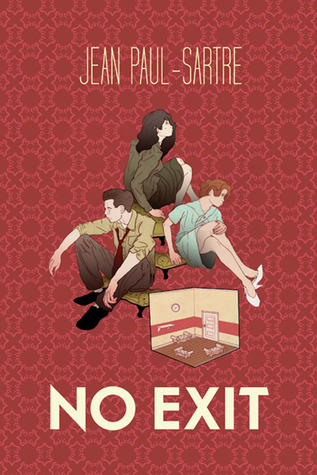 For a play, I decided to forgo Shakespeare, which had been my original plan, and read No Exit instead. No Exit is a play that a lot of people have heard of, but I'm not sure how many people know that they've heard of it; it's the origin of the line "Hell is other people." The plot follows three people who get put together in a single room in Hell, so that they can annoy each other for all eternity. There is, of course, a love triangle involved. I found all of the people extremely annoying, just as bothersome to myself as to each other, and I couldn't wait to be parted with them...which doesn't bode very well for a play. But then, plays are a weird thing, because they're not meant to be read. They're meant to be watched and performed. I've never seen No Exit performed, and it's quite likely that I'd have a different reaction to it if I did. Like some of the other categories in the Popsugar Reading Challenge, this one seems weird to me, because you can't really get the full feel of a play by just reading it. Based on my reading, though, I'm going to have to go with a 2-star rating.
For a play, I decided to forgo Shakespeare, which had been my original plan, and read No Exit instead. No Exit is a play that a lot of people have heard of, but I'm not sure how many people know that they've heard of it; it's the origin of the line "Hell is other people." The plot follows three people who get put together in a single room in Hell, so that they can annoy each other for all eternity. There is, of course, a love triangle involved. I found all of the people extremely annoying, just as bothersome to myself as to each other, and I couldn't wait to be parted with them...which doesn't bode very well for a play. But then, plays are a weird thing, because they're not meant to be read. They're meant to be watched and performed. I've never seen No Exit performed, and it's quite likely that I'd have a different reaction to it if I did. Like some of the other categories in the Popsugar Reading Challenge, this one seems weird to me, because you can't really get the full feel of a play by just reading it. Based on my reading, though, I'm going to have to go with a 2-star rating. My pick for "A book you should have read in school but didn't" was pretty much the only book that I could remember not reading for a class, Affairs of Honor. This is a book about the Founding Fathers' generation politicking and how politics was tied up with personal honor, all of it building up to the election of 1800. While the concept is interesting, and it did reveal a few things I didn't know about American history, I wasn't thrilled with it overall and can remember why I started but decided not to finish it for my class. The thing is, it's boring. This is not a popular history book. It's decidedly academic, which means that it beats you over the head with its message--that honor played into politics--until you're pretty much ready to scream that yes, you get it, and you're ready to move on. The moving on, however, never happens. Blargh. 2 stars, because I learned a few things, but I was bored out of my mind while I did it.
My pick for "A book you should have read in school but didn't" was pretty much the only book that I could remember not reading for a class, Affairs of Honor. This is a book about the Founding Fathers' generation politicking and how politics was tied up with personal honor, all of it building up to the election of 1800. While the concept is interesting, and it did reveal a few things I didn't know about American history, I wasn't thrilled with it overall and can remember why I started but decided not to finish it for my class. The thing is, it's boring. This is not a popular history book. It's decidedly academic, which means that it beats you over the head with its message--that honor played into politics--until you're pretty much ready to scream that yes, you get it, and you're ready to move on. The moving on, however, never happens. Blargh. 2 stars, because I learned a few things, but I was bored out of my mind while I did it. Finally, I had to fulfill the category of "A popular author's first book," for which I selected Terry Pratchett's The Carpet People. Upon actually opening the book, I found a foreword that said that this version of The Carpet People isn't actually the original version, which kind of threw a wrench in my plans, but it was too late to select another title, so I just kept going. The thing is, The Carpet People was Pratchett's first novel, but when he became famous, he decided to re-publish it with some changes that he made as a more developed writer. It's my firm opinion that authors shouldn't get to re-tinker with books that have been previously published, because once it's out there, it's out there, but I guess when you're Terry Pratchett you're so beloved (and so missed; I picked this one because Pratchett had just passed away when I began this challenge) that you can do pretty much whatever the heck you want. That said, The Carpet People was a cute fantasy story set in your very own living room carpet, wherein lives its own civilization of minute size. The Munrungs, part of the Dumii empire, find their home destroyed by Fray (the vacuum?) and are then attacked by fierce creatures called mouls. Driven from their home, they end up leading the charge to reclaim the empire from the mouls. It's not a terribly complex story, but it's a very cute one and shows off the creativity that later blossomed into Pratchett's vibrant Discworld series. 3.5 stars.
Finally, I had to fulfill the category of "A popular author's first book," for which I selected Terry Pratchett's The Carpet People. Upon actually opening the book, I found a foreword that said that this version of The Carpet People isn't actually the original version, which kind of threw a wrench in my plans, but it was too late to select another title, so I just kept going. The thing is, The Carpet People was Pratchett's first novel, but when he became famous, he decided to re-publish it with some changes that he made as a more developed writer. It's my firm opinion that authors shouldn't get to re-tinker with books that have been previously published, because once it's out there, it's out there, but I guess when you're Terry Pratchett you're so beloved (and so missed; I picked this one because Pratchett had just passed away when I began this challenge) that you can do pretty much whatever the heck you want. That said, The Carpet People was a cute fantasy story set in your very own living room carpet, wherein lives its own civilization of minute size. The Munrungs, part of the Dumii empire, find their home destroyed by Fray (the vacuum?) and are then attacked by fierce creatures called mouls. Driven from their home, they end up leading the charge to reclaim the empire from the mouls. It's not a terribly complex story, but it's a very cute one and shows off the creativity that later blossomed into Pratchett's vibrant Discworld series. 3.5 stars.